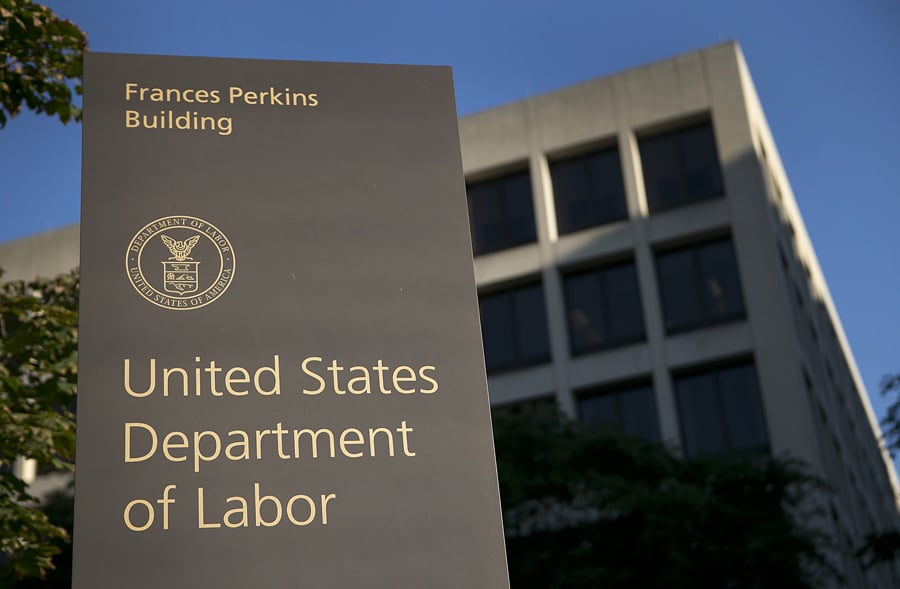

A Department of Labor proposal that would reform investment selection rules for retirement accounts could chill the use of socially responsible investments in them, experts said Wednesday.
Tuesday night, the DOL published for public comment a proposal to update and clarify its investment duties regulation for employer-sponsored retirement plans, such as 401(k)s, that are governed by the Employee Retirement Income Security Act. It emphasizes that a retirement plan must focus on financial returns for participants.
The DOL said in a press release that its motivation was to “provide clear regulatory guideposts” for plan fiduciaries given the increasing popularity of environmental, social and governance investing. That trend is giving the agency pause.
“The Department is concerned that the growing emphasis on ESG investing may be prompting ERISA plan fiduciaries to make investment decisions for purposes distinct from providing benefits to participants and beneficiaries and defraying reasonable expenses of administering the plan,” the proposal states. “The Department is also concerned that some investment products may be marketed to ERISA fiduciaries on the basis of purported benefits and goals unrelated to financial performance.”
The doubt cast on ESG investing worries Brian Graff, chief executive of the American Retirement Association. The investments are meeting a growing demand and can perform well.
“The way they have approached the preamble could have a chilling effect” on the use of ESG, Graff said. “That’s concerning. It’s unnecessarily negative. The presumption appears to be that there is a problem with all ESG-type investments, which I don’t agree with.”
The measure adds new requirements for investment analysis and documentation when selecting ESG investments. It’s going to increase compliance costs and risks associated with including those products in retirement plans, said George Michael Gerstein, counsel at Stradley Ronon Stevens & Young.
“It’s an aggressive proposal,” Gerstein said. “Impact investing and socially responsible investing and similar investment strategies are beleaguered under this proposal.”
The DOL said it is not trying to curb ESG holdings, but it is emphasizing that plan fiduciaries should not increase the cost of a plan or reduce its return in order to make ESG investments.
“Of course, to the extent that a particular ESG factor is relevant to the financial merits of an investment decision, it is appropriate for an ERISA plan fiduciary to consider that factor,” a senior DOL official told reporters Tuesday night. “But under ERISA, a fiduciary may never sacrifice the financial interests of plan participants and other beneficiaries to promote other objectives.”
Federally regulated retirement plans must concentrate on building retirement nest eggs, said DOL Secretary Eugene Scalia.
“Private employer-sponsored retirement plans are not vehicles for furthering social goals or policy objectives that are not in the financial interest of the plan,” Scalia said in a statement. “Rather, ERISA plans should be managed with unwavering focus on a single, very important social goal: providing for the retirement security of American workers.”
The proposal comes at a time when the Employee Benefits Security Administration, which drafted the measure, is surveying some retirement plans about their use of ESG.
Basically, the DOL is saying ESG better contribute to the bottom line of a plan, Gerstein said. An ESG vehicle’s efficacy in addressing climate change, for instance, might not be a sufficient reason for choosing it.
The plan fiduciary “appears to be precluded from selecting an ESG fund for any reason other than the ESG factor is material to investment performance,” Gerstein said.
The proposal is open for a 30-day comment. After reviewing the input, DOL could revise the proposal and then develop a final rule. The final measure would have to be approved by the Office of Management and Budget before being promulgated by the agency.
The timeline is tight to put a final rule in place before the end of the first term of the Trump administration. If Democrats win the White House in the fall election, the ESG proposal could be in jeopardy.
“If there’s a different administration, they will revisit this [proposal],” Graff said.

Driven by robust transaction activity amid market turbulence and increased focus on billion-dollar plus targets, Echelon Partners expects another all-time high in 2025.

The looming threat of federal funding cuts to state and local governments has lawmakers weighing a levy that was phased out in 1981.

The fintech firms' new tools and integrations address pain points in overseeing investment lineups, account monitoring, and more.

Canadian stocks are on a roll in 2025 as the country prepares to name a new Prime Minister.

Carson is expanding one of its relationships in Florida while Lido Advisors adds an $870 million practice in Silicon Valley.
RIAs face rising regulatory pressure in 2025. Forward-looking firms are responding with embedded technology, not more paperwork.
As inheritances are set to reshape client portfolios and next-gen heirs demand digital-first experiences, firms are retooling their wealth tech stacks and succession models in real time.
